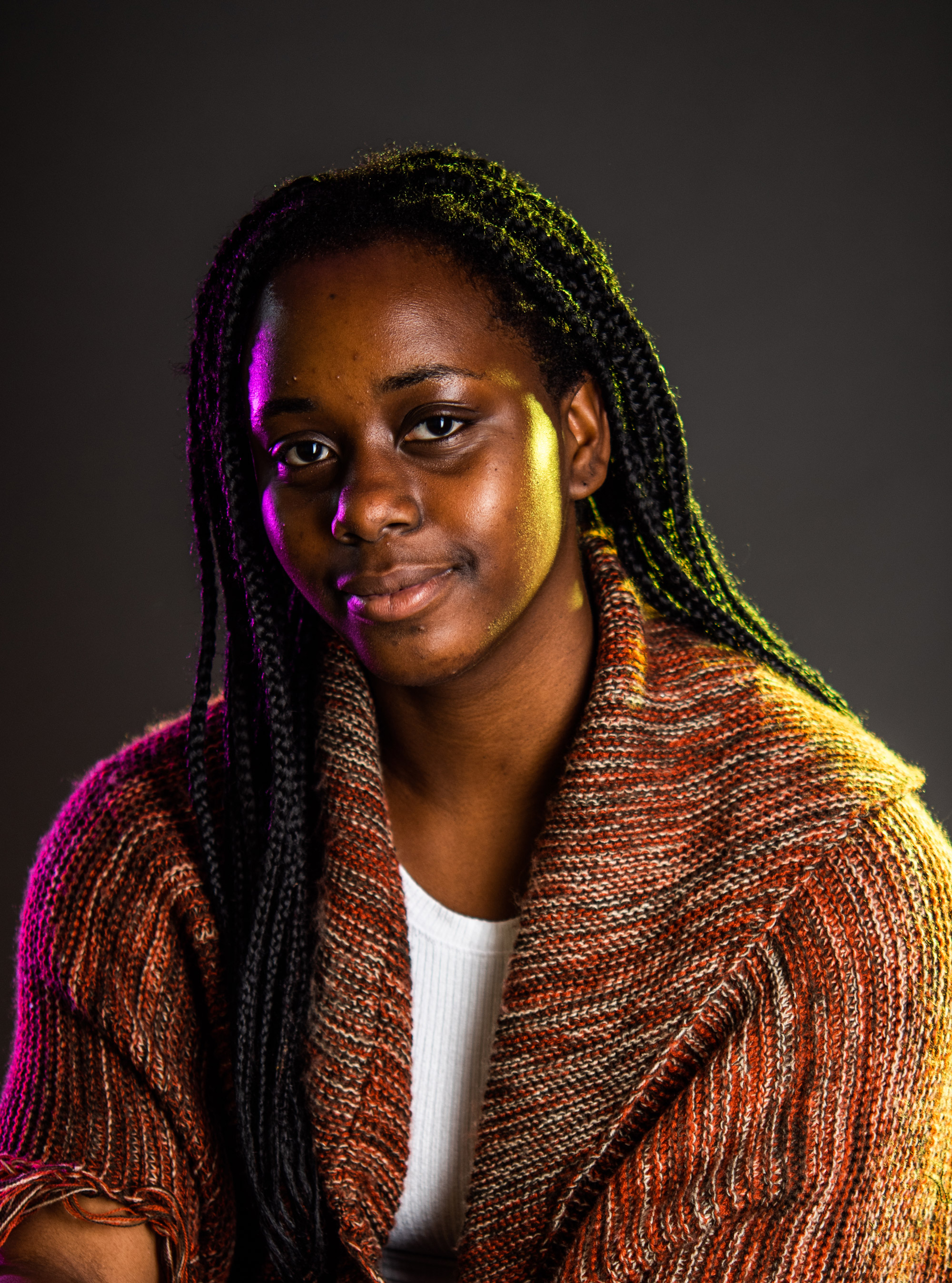Meet the Class of 2023: Kennedy Williams

Meet the Class of 2023: Kennedy Williams
A hearing and speech impairment is no obstacle for this CAS freshman
Who are BU’s newest Terriers? The 3,186 entering freshmen hail from 42 states and 53 countries, a quarter of the class comprises international students, and nearly 20 percent are from underrepresented minorities. But those are just numbers. To give you a more personal glimpse, we introduce you this week to three members of the Class of 2023.
When Kennedy Williams spoke in front of 500 of her high school peers during a school walkout last year to protest gun violence, she felt jittery—but not for the expected reasons.
After years of speech therapy, she knew that emotional topics sometimes cause her words to spill out in a muddled blur. And what could be a more emotional topic than the mass murder of 17 people at a Parkland, Fla., high school and the demand for increased gun control?
“I was really afraid,” says Williams, a College of Arts & Sciences freshman. “But I am aware of my challenges, and I have no plans of letting them hold me back.”
Arriving freshmen typically have little idea of who their new classmates are beyond the carefree Instagram images they see on social media, yet like Williams, many begin college already shaped by adversity. A cheerleader and activist at her Glastonbury, Conn., high school, she has already completed a stint as a lab researcher at the University of Connecticut, and few would guess that she has spent much of her life painstakingly learning to speak and form her words fully so that she can articulate the ideas in her head.
A severe case of chronic otitis media with effusion when she was a young child caused her inner ears to become infected and fill with fluid, impairing her hearing. Doctors attempted to fix the problem with surgery when she was four and again when she was seven, but the hearing loss had affected her ability to communicate verbally. Sometimes she mispronounced or slurred her words, even though her thoughts were clear, making her feel like a stranger to herself.
“It made me not want to speak up and answer questions in school or go out and talk to people,” Williams says.
Today, Williams’ speech impairment is barely discernible. She says the credit belongs to her mother, who enrolled her in beauty pageants so she could practice public speaking. (She was eventually named Miss Northeast Preteen). She also did some public speaking as a national delegate for the Girl Scouts of America (and was asked by the CEO to host a radio interview that was broadcast across Connecticut). At Glastonbury High School, she was president of the Black Student Union and Women’s Empowerment Club and volunteered to give her school’s daily news announcement.
I beg of you that if you take anything out of today, that it is you are capable of so much. Your opinions matter.
Williams, who plans on majoring in biology and is considering a career as a fertility specialist, created her own coursework as a high school junior, reaching out to two dozen college and university researchers because she wanted to better understand what it’s like to work in a laboratory setting. She landed a spot working in the lab of University of Connecticut School of Medicine researcher Marc F. Hansen studying the genetic roots of Paget’s disease and osteosarcoma bone diseases.
Hansen, the director of the medical school’s high school mentoring program, says Williams investigated gene expression in a type of bone cancer that affects adolescents, successfully performing bench work “with only minimal help from members of my laboratory.”
“Observing her work, I found that she was careful, thoughtful, and determined to succeed,” he says. “I will be excited to follow her career as she goes through BU and beyond. I am unashamed to say that I will be recruiting her for UConn’s School of Medicine when she graduates.”
Overcoming her own obstacles, Williams says, has made her feel confident she can achieve her goals, and the fact that she enjoys research work in a laboratory helps.
“I really do enjoy it, mostly because I’m able to just be with my thoughts,” she says.
She says she also plans to continue pursuing issues she is passionate about. Despite her nervousness, she spoke out forcefully at that 2018 walkout protesting the nation’s gun policies, imploring her fellow students to voice their opinions to their elected officials.
“I beg of you that if you take anything out of today, that it is you are capable of so much,” she told the crowd. “Your opinions matter.”
In the weeks before the speech, Williams says, she worked with her former speech therapist to practice pronunciation. And she carried a printout of her speech, one that had phonetic spelling of words like “representative” and “president,” in case she stumbled or needed a visual cue.
Remaining silent was not an option.
“I know that I can do so much by using my voice,” she says.
Comments & Discussion
Boston University moderates comments to facilitate an informed, substantive, civil conversation. Abusive, profane, self-promotional, misleading, incoherent or off-topic comments will be rejected. Moderators are staffed during regular business hours (EST) and can only accept comments written in English. Statistics or facts must include a citation or a link to the citation.